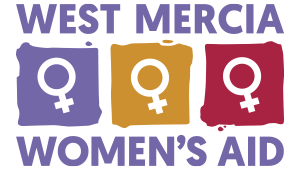West Mercia Women’s Aid
Support for Parents and Carers
Helpful Resources
Information on a wide range of organisations, services and apps that can provide specialist help and support can be found on our Resources Page.
Safety Planning Support
A safety plan can help to protect your child against future violence and abuse – download our Information About Safety Planning With Children.


Support for Parents and Carers
How to talk about domestic abuse to children
We understand that as a parent or carer you have probably tried to shield your child from domestic abuse. This can be hard to think about but it’s important to understand the ways in which children can be affected in order to help support their recovery.
We encourage communicating openly with your children in an age appropriate way, being mindful of those times when they do not want to communicate. It can be helpful to let them know that time to themselves is ok but that you are there to listen and support them whenever they are ready.
Sometimes observational statements can be supportive and less intrusive than questions, e.g.
- I’m here for you
- Tell me more…
- Let’s sit together
It can sometimes be difficult to find the words, perhaps try other ways to communicate, through drawing, journaling, play and books.
It’s ok to acknowledge it may be difficult to talk about the abuse, it is scarier for children when nobody talks about it. Be responsive to how you and your child is feeling and validate their feelings, letting them know they are not alone.
Explain to them that abuse is wrong and that…
- It’s ok for them to talk about it and express their feelings
- You will listen
- It’s not their fault
- Everyone has the right to feel safe
- It’s never ok for someone to behave in a violent or abusive way
- Let them know you will help them to be safe and you can talk about ways to increase their safety
Children who live with Domestic Violence/Abuse may feel
- Powerless – because they can’t stop it
- Confused – because it doesn’t make sense
- Angry – because it shouldn’t be happening
- Guilty – because they think they’ve done something wrong
- Sad – because it’s a loss
- Afraid – because they or someone they love may be hurt, they may lose someone they love, others may find out
- Alone – because they thinks it’s only happening to them
These may be some of the emotions a child may experience – be open and explore any other emotions they are feeling.
The benefits of talking to children about violence/abuse
- Children feel safer
- They learn that the violence/abuse isn’t their fault
- They learn that violence/abuse is not an acceptable way to solve problems
- It helps them to feel seen and cared for
- They learn it’s ok to talk about feelings
Please contact us if you have any concerns or would like to discuss our Children and Young People Services (CYP).
For Gloucestershire support and services please contact the Gloucestershire Domestic Abuse Support Services (GDASS) on 01452 726 570 (open Monday to Friday, 9am – 5pm) or email support@gdass.org.uk
Looking for help?
DOMESTIC ABUSE HELPLINE
Herefordshire:
Call 0800 783 1359
Shropshire:
Call 0800 229 4066
Telford & Wrekin:
Call 0800 840 3747
Worcestershire:
Call 0800 980 3331
Contact us via email:
helpline@wmwa.org.uk
We also have Livechat available from 9am until 5pm, Monday to Friday for those who want to contact our helpline silently or who prefer to text rather than talk.
If you are in immediate danger please call 999
